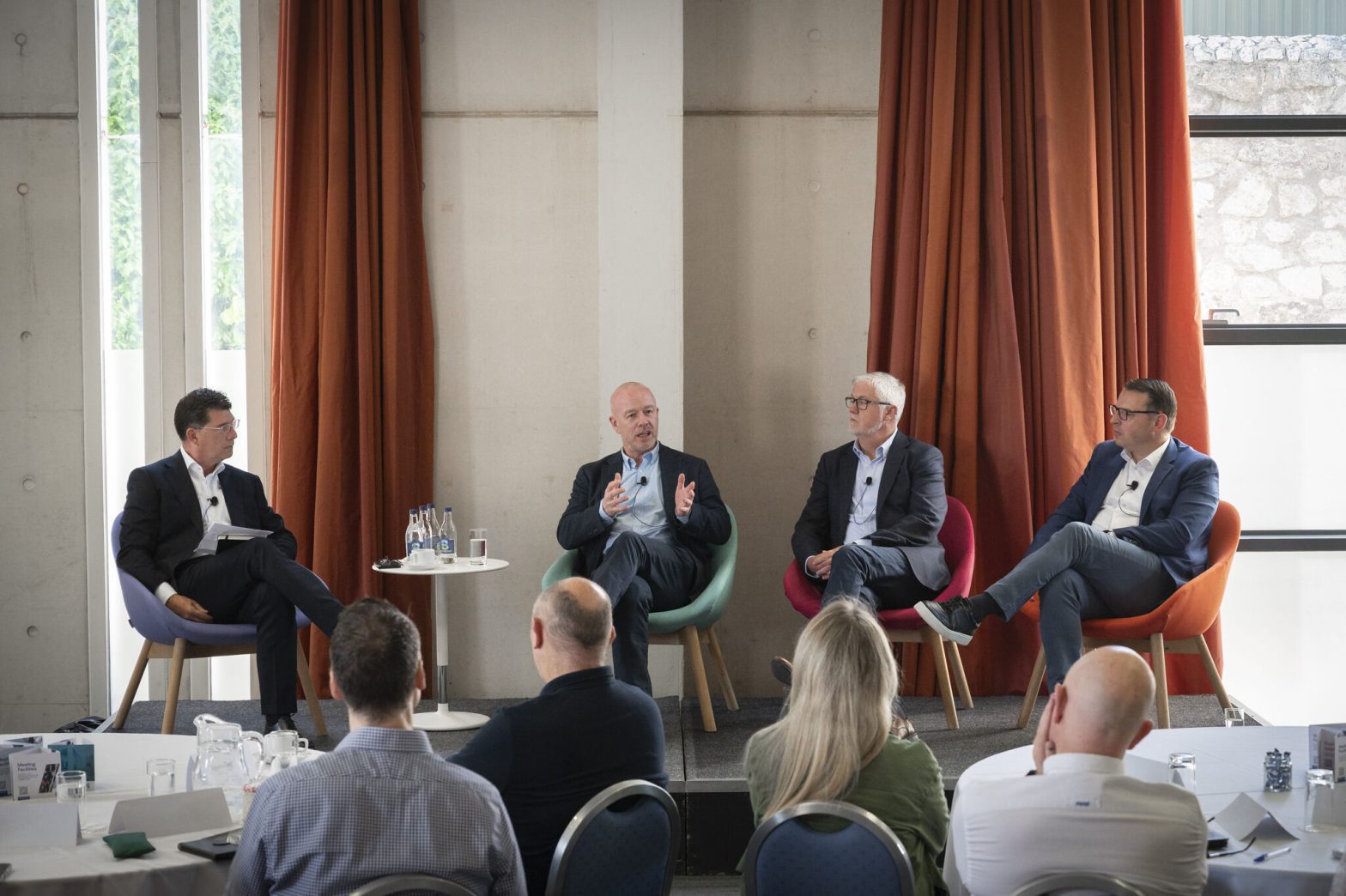Leading in the Agility Economy with Danica Murphy
By IMI | 30th October 2024
Insights from the Deloitte Best Managed Companies Symposium which took place on 1st June 2023.
In today’s rapidly evolving business landscape, leaders face unprecedented challenges and opportunities. The COVID-19 pandemic served as an accelerator, propelling us into a new era of transformation and change. However, even before the pandemic, the world was on track for significant shifts. During the recent Deloitte Best Managed Companies Symposium, Danica Murphy led a session about the concept of the “agility economy” and its impact on leaders as they navigate the changing landscape. Trust emerges as the key currency in this new economy, underscoring the importance of leadership, adaptability, and effective communication.
Danica Murphy, a thought leader in business agility, has coined the term “agility economy” to capture the essence of the current business environment. In this economy, trust is the single most valuable currency. Without trust, organisations cannot effectively manage the challenges and opportunities presented by rapid change. Leaders must recognise the centrality of trust and actively cultivate it within their teams and organisations.
To understand the current state of the world, we can draw parallels to previous industrial revolutions. We are now in the midst of the fifth industrial revolution, which began around 2020. The previous industrial revolution began around 2000, with the advent of the internet of things, and networks, and with our current industrial revolution leading on from this and focusing on personalisation, inclusivity and purpose, we’re firmly in the realm of the agility economy. Historically, we have created new technologies before developing the capabilities to effectively manage them. This leads to significant periods of change and adjustment.
Prior to the pandemic, the world was transitioning from industry 4.0 to industry 5.0, and signs of this shift were evident in various industries. However, some leaders were reluctant to embrace this change, much like the scepticism surrounding computers before the turn of the millennium. The focus on personalisation and the “me-centric” mindset has fueled a society where human interaction can be minimised, leading to a need for leaders to recognize the importance of human connection and collaboration.
The Need for Agility and Collaboration
The transition to a knowledge economy has resulted in larger teams, but bigger teams do not necessarily move faster. With the ever-increasing pace of change, organisations require teams that can adapt quickly. Before the pandemic, the optimal number of direct reports for a leader was seven. However, to foster meaningful connections and promote agility, this number has now reduced to around five.
VUCA, an acronym for volatility, uncertainty, complexity, and ambiguity, was initially used to describe the post-Cold War era and later popularised by Warren Buffett. Humans are naturally resistant to change, seeking stability and predictability. Leaders who fail to acknowledge the inherent challenges of navigating VUCA conditions may find themselves paralysed by a fight-or-flight response, hindering effective decision-making. Acknowledging and addressing VUCA is essential for leaders to thrive in the agility economy.
Studies indicate that 94% of executives and 88% of employees consider agility and collaboration crucial to organisational success. Active listening is the foundation of effective collaboration, yet it is a skill often overlooked. Leaders must prioritise training and developing their teams in active listening techniques to foster a culture of collaboration and innovation.
Navigating Organisational Change
Organisational change is often met with resistance, and approximately 70% of change initiatives fail due to inadequate attention to the human component. Educating employees about the messy nature of change and fostering trust within the organisation are crucial elements for successful change implementation. Leaders must assess their willingness to embrace discomfort and guide their teams through periods of uncertainty.
The pandemic highlighted the importance of simplifying tasks and providing clear instructions, however micromanagement may not be the answer. It is equally important to consider the well-being and cognitive capacity of employees. Scheduling breaks between meetings, even brief ones, can significantly enhance productivity and overall cognitive performance.
Leaders must not confine themselves to their own comfort zones where they’re deriving satisfaction from booking meetings, or completing tasks. Stepping off the dancefloor and taking a broader perspective allows leaders to consider the impact of their actions on individuals and the organisation as a whole. Building trust, fostering healthy debates, and encouraging commitment are essential for driving innovation and sustainable growth.
Prioritising Trust and Communication
Research shows that 55% of CEOs identify a lack of trust as the biggest threat to growth. Trust is the catalyst for innovation, conflict resolution, and effective decision-making. Leaders must prioritise trust-building initiatives within their organisations. Communication, characterised by openness, transparency, and active engagement, serves as the cornerstone of trust.
In the agility economy, leaders face a unique set of challenges and opportunities. Recognising the importance of trust, fostering collaboration, and embracing change are vital for navigating this landscape successfully. By prioritising trust, embracing new ways of working, and investing in effective communication, leaders can drive innovation, resilience, and growth in their organisations and emerge as agents of positive change in the ever-evolving business world.
FAQ
How can leaders effectively cultivate trust within their teams to navigate the challenges of the agility economy?
Trust is essential for fostering collaboration and innovation; leaders can prioritize open communication and transparency to build a strong foundation of trust within their organizations.
What strategies can leaders implement to enhance agility and collaboration among teams in a rapidly changing business environment?
Leaders should focus on reducing team sizes for meaningful connections, actively listening to team members, and training for collaboration skills to promote agility in response to change.
Why is it crucial for leaders to embrace discomfort and guide their teams through periods of uncertainty during organizational change?
Acknowledging discomfort allows leaders to address the human component of change, fostering trust and resilience, which are critical for successfully navigating and implementing organizational transformations.



